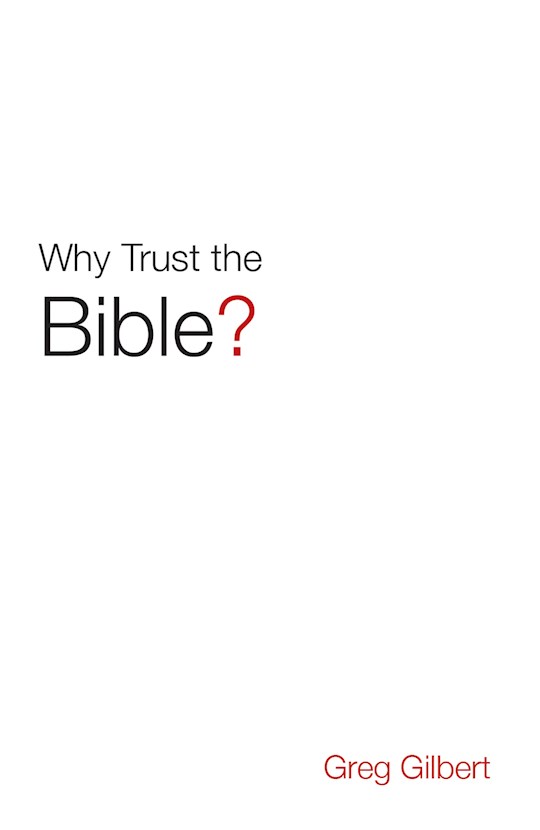Tract-Why Trust The Bible? (ESV) (Pack Of 25)

| Price: | $4.25 $3.61 |
| Quantity Available: | 38 (as of 10:13am EDT on 04/29/2024) |
| ISBN/UPC: | 1682163482 |
| Department: | Book |
| Format: | Tract |
| Author/Artist: | Gilbert Greg |
| Publisher: | Crossway Books |
| Product ID: | 175740 |
| Description: | Why Trust the Bible? Don’t believe everything you read. Everybody knows that. So why trust the Bible? What can be known about its historical reliability? Doing History Even more than other religions, Christianity presents itself as history. At its heart, Christianity claims that something extraordinary happened in the course of time—something concrete, real, and historical. In the Bible, the New Testament declares that a man named Jesus was born to a virgin, claimed to be God, did miracles like walking on water and raising people from the dead, was crucified on a Roman cross, then rose from the dead and ascended into heaven to reign as King of the universe. Can we conclude confidently these things are true without simply presupposing the Bible is “the Word of God� One way to find out is to approach the New Testament as a collection of historical documents that speak for themselves. But are these documents truly reliable, historically speaking? Answering that involves a series of questions. Are Our Bible Translations Accurate? Although translation from ancient languages is neither easy nor simple, scholars have been working at it for centuries. It really is possible for genuine, accurate, correct communication to occur through translation. In the New Testament, there is only a small percentage of content that has proven difficult in translation. The best Bible translations acknowledge these places with a footnote. Moreover, we can confidently say that not one major doctrine of orthodox Christianity rests on any disputed or uncertain passage. We know what the Bible says and what it means. Were the Original Sources Accurately Copied? As with other ancient books, the physical pieces of “paper†on which the original authors first wrote the New Testament have been lost to history. But we have thousands of other ancient writings (on papyrus, vellum, and parchment) with original-language text copied from each book of the Bible—about 5,400 distinct pieces when it comes to the New Testament, many going back to the first three centuries. They allow us to reconstruct with a huge degree of confidence what the originals said. (By comparison, for Julius Caesar’s Gallic Wars we have at most ten readable copies, the earliest of which dates nine hundred years after Caesar’s time.) By comparing ancient copies of New Testament content with each other, we find a remarkably stable history of copy-making. For a few passages there’s genuine doubt about the original text, as reflected by a relatively large number of variations. The vast majority of these variations are minor, not affecting how we ultimately understand the Bible’s meaning. Were These Originals Truly the Best Sources? But were these the right documents to be looking at in the first place? Were other “Gospels†out there telling a different but equally reliable story about Jesus? Actually, the only Christian books dated confidently to the first century are the very ones that finally made up the New Testament—most of them already recognized by Christians as authoritative by first century’s end. Not until about a hundred years later did books start showing up that departed significantly from New Testament teaching. Meanwhile, Christians had good, plausible, historically meaningful reasons for explaining why the books in our New Testament should be there while others shouldn’t. The earlier documents were recognized as reliable witnesses to Jesus’s life and teachings. Were the Original Authors Trustworthy? In their narratives, New Testament authors included verifiable details of real, historical facts. Close scrutiny makes clear that these authors weren’t writing fiction, or perpetrating some hoax, or under any delusion. They obvio |

